BMW iX2 vs Mercedes EQE SUV - Differences and prices compared
Compare performance (313 HP vs 625 HP), boot space and price (43700 £ vs 71600 £ ) at a glance. Find out which car is the better choice for you – BMW iX2 or Mercedes EQE SUV?
Costs and Efficiency:
Price and efficiency are key factors when choosing a car – and this is often where the real differences emerge.
BMW iX2 has a decisively advantage in terms of price – it starts at 43700 £ , while the Mercedes EQE SUV costs 71600 £ . That’s a price difference of around 27839 £.
In terms of energy consumption, the advantage goes to the BMW iX2: with 14.40 kWh per 100 km, it’s evident more efficient than the Mercedes EQE SUV with 18.30 kWh. That’s a difference of about 3.90 kWh.
As for electric range, the Mercedes EQE SUV performs to a small extent better – achieving up to 611 km, about 99 km more than the BMW iX2.
Engine and Performance:
Under the bonnet, it becomes clear which model is tuned for sportiness and which one takes the lead when you hit the accelerator.
When it comes to engine power, the Mercedes EQE SUV has a significantly edge – offering 625 HP compared to 313 HP. That’s roughly 312 HP more horsepower.
In acceleration from 0 to 100 km/h, the Mercedes EQE SUV is clearly quicker – completing the sprint in 3.70 s, while the BMW iX2 takes 5.60 s. That’s about 1.90 s faster.
There’s also a difference in torque: Mercedes EQE SUV pulls significantly stronger with 950 Nm compared to 494 Nm. That’s about 456 Nm difference.
Space and Everyday Use:
Beyond pure performance, interior space and usability matter most in daily life. This is where you see which car is more practical and versatile.
Both vehicles offer seating for 5 people.
In curb weight, BMW iX2 is noticeable lighter – 1960 kg compared to 2440 kg. The difference is around 480 kg.
In terms of boot space, the BMW iX2 offers hardly perceptible more room – 525 L compared to 520 L. That’s a difference of about 5 L.
When it comes to payload, Mercedes EQE SUV slightly takes the win – 580 kg compared to 510 kg. That’s a difference of about 70 kg.
Who wins the race in the data check?
The Mercedes EQE SUV is clearly superior overall in the objective data comparison.
This result only shows which model scores more points on paper – not which of the two cars feels right for you.
Costs and Consumption
View detailed analysis
Engine and Performance
View detailed analysis
Dimensions and Body
View detailed analysis
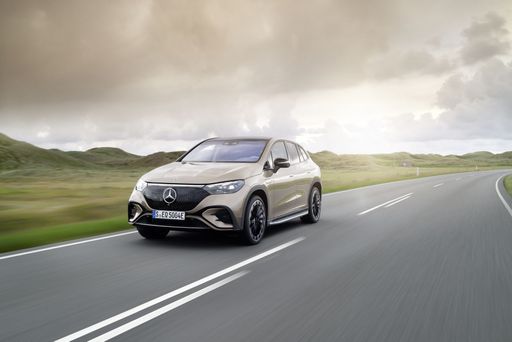
Mercedes EQE SUV
BMW iX2
The BMW iX2 cuts a sporty silhouette and delivers the buttoned-up premium feel you expect from the brand, wrapped in a compact electric package that’s easy to live with. It’s a smart pick for buyers who want engaging city driving, clever cabin tech and a touch of eco-conscious flair without giving up the fun behind the wheel.
details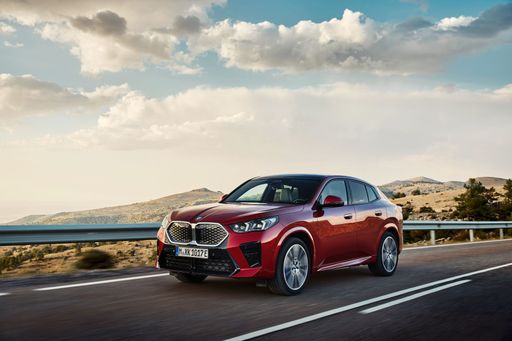
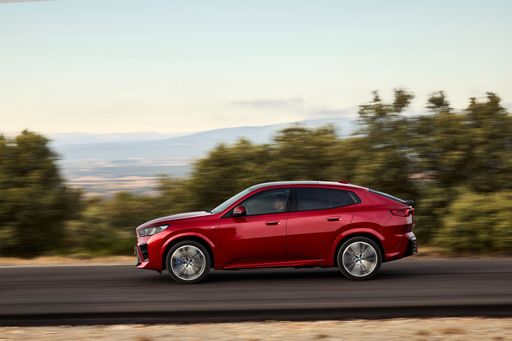
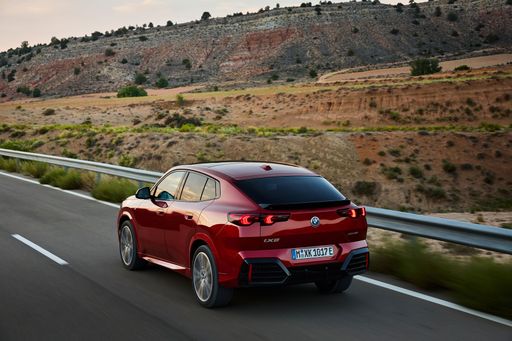
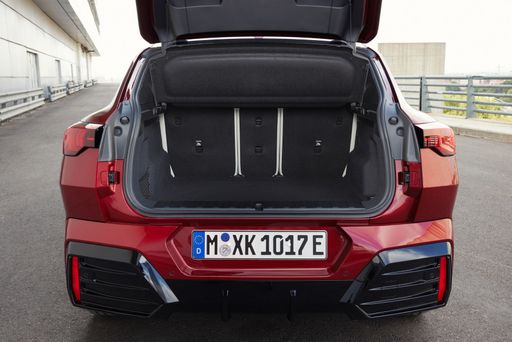
Mercedes EQE SUV
The Mercedes EQE SUV wraps silent electric power in a sumptuous, tech-filled shell, offering a cocoon-like cabin that makes long journeys feel indulgent. It’s not a driver's toy but a sophisticated cruiser for buyers who want luxury, space and futuristic gadgetry without shouting for attention.
details
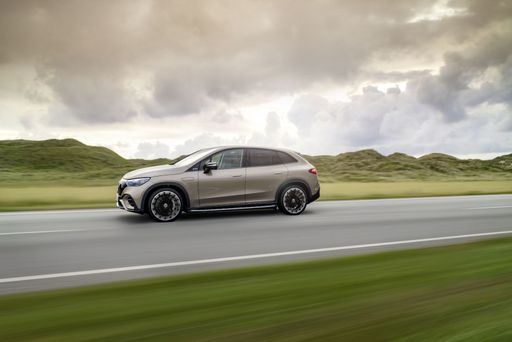

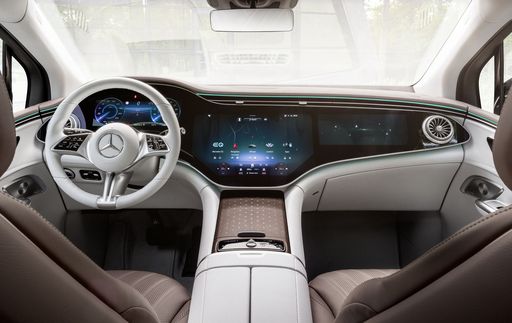
Costs and Consumption |
|
|---|---|
|
Price
43700 - 55600 £
|
Price
71600 - 125100 £
|
|
Consumption L/100km
-
|
Consumption L/100km
-
|
|
Consumption kWh/100km
14.4 - 15.4 kWh
|
Consumption kWh/100km
18.3 - 23.1 kWh
|
|
Electric Range
476 - 512 km
|
Electric Range
453 - 611 km
|
|
Battery Capacity
-
|
Battery Capacity
90.5 - 96 kWh
|
|
co2
0 g/km
|
co2
0 g/km
|
|
Fuel tank capacity
-
|
Fuel tank capacity
-
|
Dimensions and Body |
|
|---|---|
|
Body Type
SUV
|
Body Type
SUV
|
|
Seats
5
|
Seats
5
|
|
Doors
-
|
Doors
4
|
|
Curb weight
1960 - 2095 kg
|
Curb weight
2440 - 2615 kg
|
|
Trunk capacity
525 L
|
Trunk capacity
520 L
|
|
Length
-
|
Length
4863 - 4879 mm
|
|
Width
1845 mm
|
Width
1940 mm
|
|
Height
-
|
Height
1672 - 1685 mm
|
|
Max trunk capacity
-
|
Max trunk capacity
1675 L
|
|
Payload
500 - 510 kg
|
Payload
505 - 580 kg
|
Engine and Performance |
|
|---|---|
|
Engine Type
Electric
|
Engine Type
Electric
|
|
Transmission
Automatic
|
Transmission
Automatic
|
|
Transmission Detail
Reduction Gearbox
|
Transmission Detail
Reduction Gearbox
|
|
Drive Type
Front-Wheel Drive, All-Wheel Drive
|
Drive Type
All-Wheel Drive, Rear-Wheel Drive
|
|
Power HP
204 - 313 HP
|
Power HP
265 - 625 HP
|
|
Acceleration 0-100km/h
5.6 - 8.6 s
|
Acceleration 0-100km/h
3.7 - 7.1 s
|
|
Max Speed
-
|
Max Speed
210 - 240 km/h
|
|
Torque
250 - 494 Nm
|
Torque
550 - 950 Nm
|
|
Number of Cylinders
-
|
Number of Cylinders
-
|
|
Power kW
150 - 230 kW
|
Power kW
195 - 460 kW
|
|
Engine capacity
-
|
Engine capacity
-
|
General |
|
|---|---|
|
Model Year
2026
|
Model Year
2023 - 2025
|
|
CO2 Efficiency Class
A
|
CO2 Efficiency Class
A
|
|
Brand
BMW
|
Brand
Mercedes-Benz
|
What drivetrain options does the BMW iX2 have?
The BMW iX2 is available as Front-Wheel Drive or All-Wheel Drive.
